
Checklist to determine the credibility of resources for research assignments. The checklist uses the CRAAP test. The acronym stands for currency, relevance, authority, accuracy, and purpose. A handout is attached for printing.

Checklist to determine the credibility of resources for research assignments. The checklist uses the CRAAP test. The acronym stands for currency, relevance, authority, accuracy, and purpose. A handout is attached for printing.
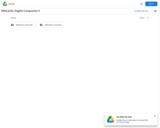
This is an expository writing course requiring more advanced writing skills than Basic English Composition 101, yet reviewing and incorporating some of the same skills. This course teaches you research skills by emphasizing the development of advanced analytical/critical reading skills, proficiency in investigative research, and the writing of expository and persuasive prose including properly documented and researched argumentative essays. A major component of this course will be an emphasis on the research process or ŰĎinformation literacyŰ: your ability to locate, evaluate and use information effectively. You also will recognize academic audiences, increase your clarity and objectivity, and adhere to standard formats.Login: guest_oclPassword: ocl
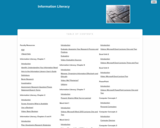
To be information literate, a person must be able to recognize when information is needed and have the ability to locate, evaluate, and use effectively the needed information. By the end of this unit you will be able to Define Information Literacy, Define the four domains that fall under Metaliterate Learners, Identify a lack of knowledge in a subject area, Identify a search topic/question and define it using simple terminology, Articulate current knowledge on a topic, Recognize a need for information and data to achieve a specific end and define limits to the information need, and Manage time effectively to complete a search.
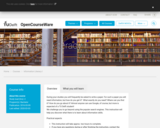
During your studies you will frequently be asked to write a paper. For such a paper you will need information, but how do you get it? What exactly do you need? Where can you find it? How do you go about it? Almost anyone can use Google, of course, but more is expected of a TU Delft student!
We challenge you to go beyond using the popular search engines. This instruction will help you discover what there is to learn about information skills.
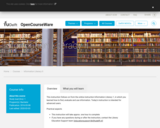
This instruction follows on from the online instruction Information Literacy 1, in which you learned how to find, evaluate and use information. Today’s instruction is intended for advanced users.
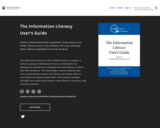
The Information Literacy User’s Guide introduces students to critical concepts of information literacy as defined for the information-infused and technology-rich environment in which they find themselves. This book helps students examine their roles as information creators and sharers and enables them to more effectively deploy related skills. This textbook includes relatable case studies and scenarios, many hands-on exercises, and interactive quizzes.
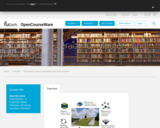
Welcome to this information literacy course for Master’s and PhD students. You probably already have some knowledge of information literacy, but if some of it has slipped your mind or if terms sound unfamiliar, this course includes links to information from the instructions for Bachelor’s students.
Writing your Master’s thesis involves a number of different phases. You cannot simply start writing! You will first need extensive knowledge of the general field of research, in order to see where your subject fits in.
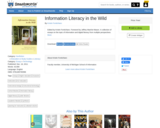
In this text, you will see information literacy examined from the perspective of students in the School of Education and the School of Information at the University of Michigan. The diversity of these perspectives contribute to new understandings and realizations as their divergent backgrounds, experiences, aspirations, and influences, both in libraries and 'in the wild', are examined in common. Their findings lend a fresh perspective to the existing body of literature on information literacy.
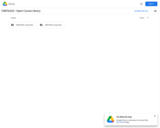
This course assists students in developing oral communication skills. Students will be able to speak effectively and comfortably to audiences; explain the nature, value, and requirements of effective public speaking; speak effectively to groups in an academic environment; speak effectively to groups in a non-academic environment; apply principles of cultural diversity to public speaking; and, employ effective information literacy techniques in public speaking.Login: guest_oclPassword: ocl
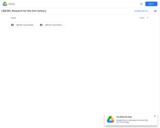
Upon completion of this course, students will be able to: develop and research a topic of global significance; recognize authorsŰŞ arguments and the political, social and economic motivations behind their work; demonstrate the ability to locate, interpret and cite the relevant and appropriate information resources on a topic; and, demonstrate an understanding of the information research process.Login: guest_oclPassword: ocl
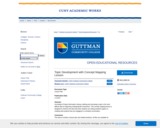
According to Project Information Literacy, defining and narrowing a topic is the most difficult step for beginning undergraduate researchers. This concept mapping lesson is designed to reinforce the idea that when students are writing academic papers or creating class projects they are engaging in a scholarly conversation.
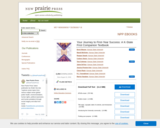
This textbook companion is a resource to help students successfully navigate through their first year at Kansas State University. It serves as part of the K-State First mission to create an outstanding university experience for every first-year student by helping with the transition to college-level learning and college life. The textbook helps improve chances for student success by focusing on fostering campus community, offering resources for diverse activities, highlighting academic expectations, and empowering students with personal responsibility and social agency. Instructors are encouraged to use the textbook in their K-State First classes, and it is also offered as a direct resource for students. In any university setting there are often unwritten rules that students are expected to understand, and this guide addresses and answers those questions directly. Ultimately, this guide encourages students to be engaged learners and to enjoy all facets of education, both inside and outside the classroom.